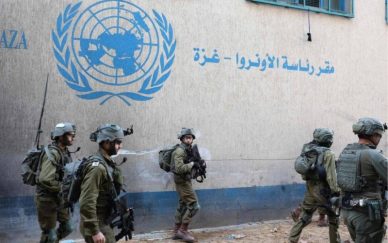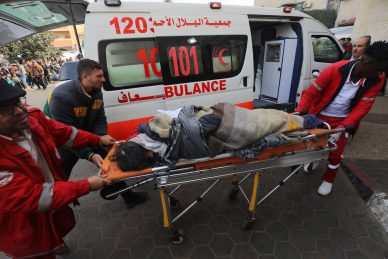GAZA, (PIC)
UNICEF spokesman James Elder has called the events unfolding in Gaza a “war on children,” saying the situation in Gaza is absolutely devastating for children.
In recent remarks to Anadolu news agency, Elder said he visited Gaza for the second time since the October 7 attacks, pointing out that there is a lot of desperation and exhaustion among people.
Elder emphasized the dire situation of the Nasser Hospital in Khan Yunis, southern Gaza Strip, which particularly deals with wounded children, affirming that it is no longer operational.
“I have visited two more hospitals today, and the hospitals are very busy. Hospital staff always talk about lack of medical supplies,” the UNICEF spokesman said, pointing out that “more than 20 out of Gaza’s 36 hospitals are simply not functioning.”
“UNICEF called this ‘a war against children.’ Normally, in all wars, children are the most vulnerable. Around 20 percent of casualties are children in wars, but in Gaza, it is close to 40 percent. More than 10,000 children have been killed, and the numbers keep going up. We do not know how many are under the rubble. This is absolutely devastating for children. Many children are hungry, and a famine is imminent,” Elder said.
Elder noted that children in Gaza are exposed to a lot of psychological stress, stating that the only way to treat these children starts “with a ceasefire.”
“Until a ceasefire, these children will continue to live in a war zone. Gaza is not a place for children right now, but there are more than a million children here. So, we have to get a ceasefire, and then ensure that they get all the care they need,” Elder added.
“The aid is coming in, just not to the level needed. There is no doubt that UNICEF is distributing aid. World Health Organization (WHO), World Food Program (WFP), and other agencies are on the ground. But the need is outstripping the supply,” Elder said.
Elder mentioned that the sounds of unmanned aerial vehicles could be heard in Rafah and fear is always prevalent.
“[Rafah] is overcrowded, people are on the ground, people are in tents. The real problem is sanitation. It is a very difficult place for people to be,” he said.














